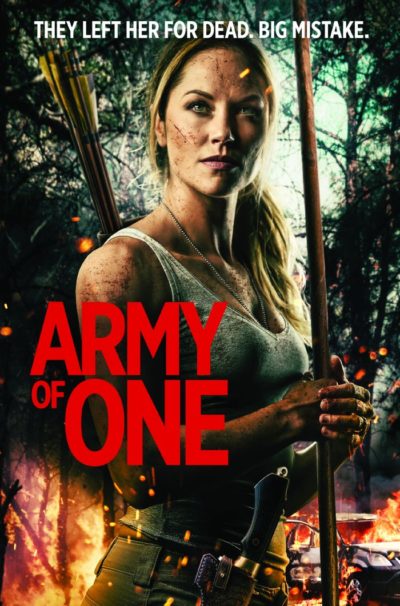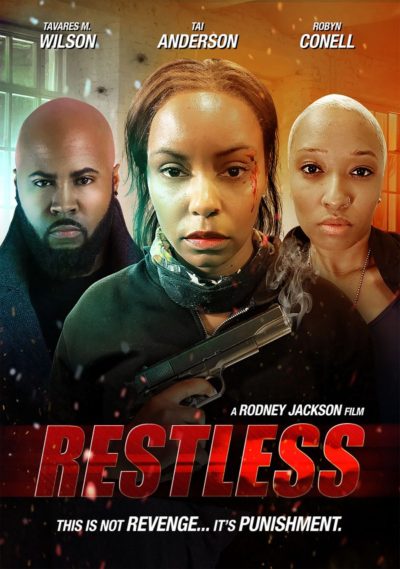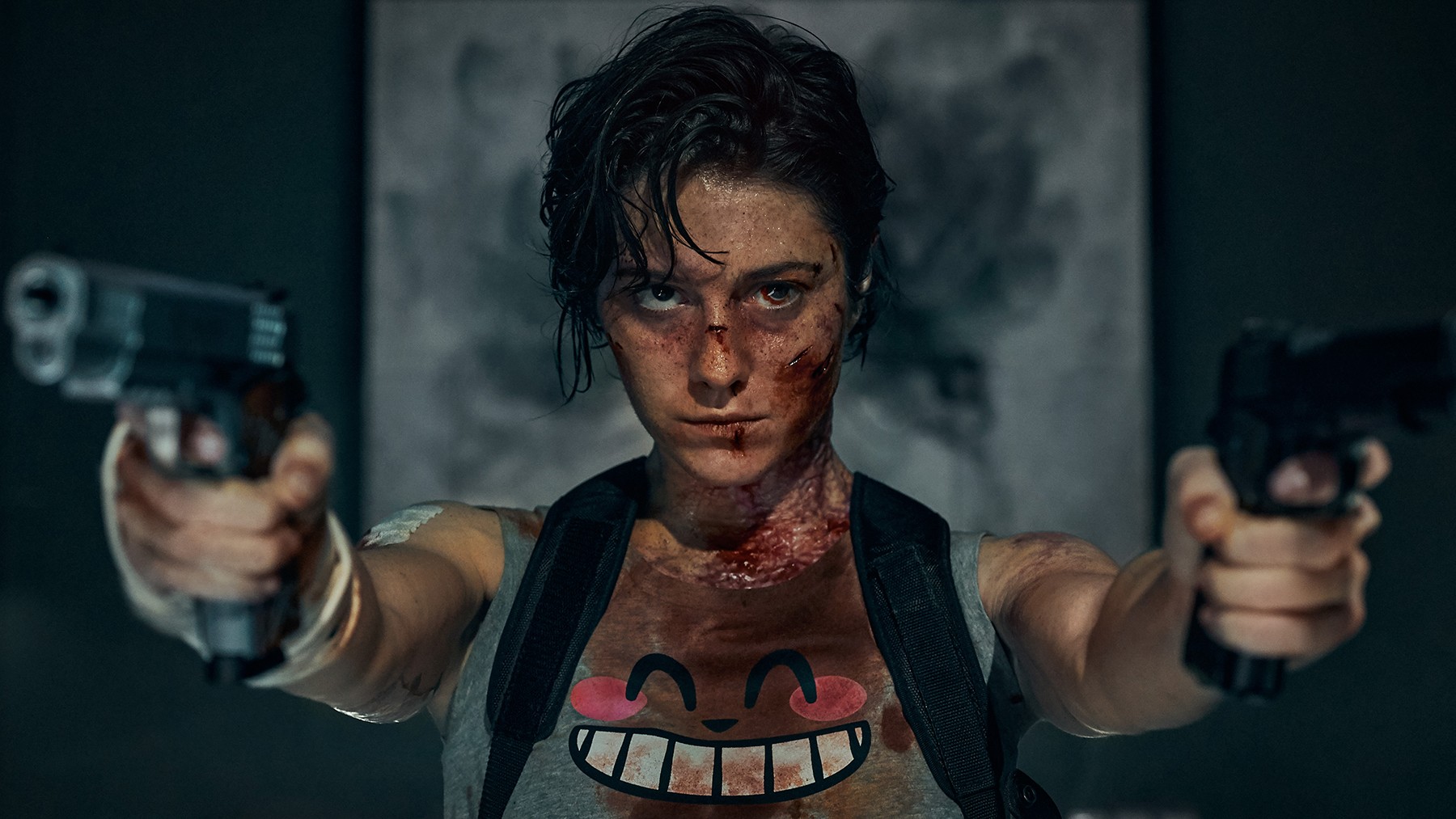 ★★★
★★★
“Dying to kill you.”
The action heroine plotline of a woman defending a child – sometimes her own, but more often an acquired kid – is a common one. The “Mama Bear”, as TV Tropes called it, was most famously used in Aliens, but shows up with some regularity in our genre. See also Ultraviolet, Furie and The Long Kiss Goodnight (have I really never reviewed that?), while Gunpowder Milkshake was the most recent example. Of course, it’s not just heroines to whom it can apply; indeed there’s another page on TV Tropes called “Badass and Child“, covering the likes of Leon: The Professional. But the pairing of an action heroine with a (usually female) child has particular resonances, that perhaps merit general discussion, before we get into the specifics of Kate.
Firstly, it offers an easy justification for any and all subsequent violence. In Western society, women are not supposed to be aggressive. They are seen as the caring, nurturing gender, but protecting their offspring is one of the few times when they are “allowed” to engage their inner monsters. Again, it’s not limited to the female sex (think Taken), but male characters tend to have a wider range of potential motivations e.g. patriotism, personal power, so you don’t see paternal protection as often. [And that’s quite enough P’s.] In most cases – Ripley being an exception – the mother figure is already something of a bad-ass, so has that “very particular set of skills” necessary. It’s just the specific direction of her targets which is a result of the threat to her offspring.
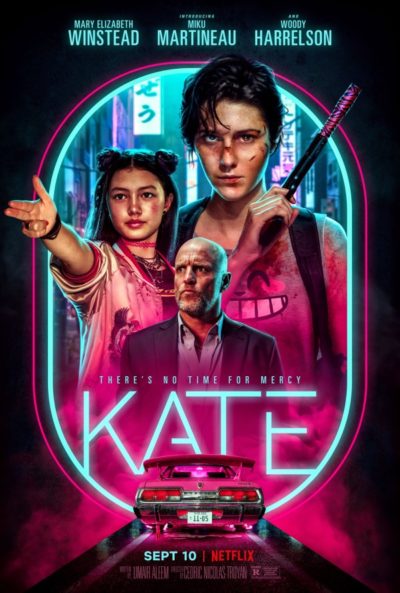 There is also, quite often, some kind of emotional resonance, in the cases where the child is not biologically related [when that is the case, you don’t typically need or get any more explanation, blood being thicker than water]. Maybe the kid acts as a surrogate, a replacement for one previously lost (Alien), or the heroine could never have. Or if a girl, the protagonist can perhaps see a younger version of herself. The other common theme is the use of the child as a key, to unlock the adult. Often, the latter has lost her humanity, typically through harsh circumstances, becoming largely a lone figure, with her emotions suppressed. The “childlike innocence” of the young person, to use a cliché, can be used as a psychological crowbar, pricing open the hard shell of the grown-up, allowing them to reconnect with their humanity. The more emotionally-driven immaturity also stands in contrast to the adult’s stoicism, often to an extreme degree.
There is also, quite often, some kind of emotional resonance, in the cases where the child is not biologically related [when that is the case, you don’t typically need or get any more explanation, blood being thicker than water]. Maybe the kid acts as a surrogate, a replacement for one previously lost (Alien), or the heroine could never have. Or if a girl, the protagonist can perhaps see a younger version of herself. The other common theme is the use of the child as a key, to unlock the adult. Often, the latter has lost her humanity, typically through harsh circumstances, becoming largely a lone figure, with her emotions suppressed. The “childlike innocence” of the young person, to use a cliché, can be used as a psychological crowbar, pricing open the hard shell of the grown-up, allowing them to reconnect with their humanity. The more emotionally-driven immaturity also stands in contrast to the adult’s stoicism, often to an extreme degree.
Which brings us to Kate, since the film demonstrates most of the above, to a certain degree. It is, to some extent, an unfortunate victim of its own timing. Probably safe to say, I would have enjoyed this more, had it not come out almost immediately on the heels of both Gunpowder Milkshake and The Protégé – films with which it has rather too much in common. All three movies are about female assassins, who find themselves at a crossroads in their professional and personal lives. In Kate and Milkshake, the protagonists find themselves, more or less unwillingly, in charge of a young girl. In Kate and The Protégé, they operate under the guidance of an older, male veteran killer, who trained them since childhood, but may or may not have their best interests at heart. Throw in to this, the “investigating your own murder” plot-line from classic film noir D.O.A., and you’ll understand why this seemed over familiar.
It begins in Osaka, where Kate (Winstead) takes out a yakuza boss, despite qualms over the presence of his daughter. She tells her mentor, Varrick (Harrelson), she will do one last mission before she retires – yeah, that cliché. But before it happens, she’s poisoned with radioactive polonium, which will kill her in a few hours. Intent on extracting vengeance, she finds it was apparently ordered by Kijima, brother of her previous victim. To try and lure him out, Kate abduct his niece, Ani (Martineau), the girl who was there when Kate killed her father. But Ani becomes a target as well, due to a power struggle within the criminal syndicate, and Kate her unwilling protector. This makes the whole “I killed your father, actually” thing more than a bit awkward, especially as Kate needs Anu’s help if she’s to discover the truth about her own assassination. For that is even more disturbing than she expects.
As you can probably tell, there’s nothing new in the story. This doesn’t mean it’s devoid of merit, for the execution is solid. Nicolas-Troyan, previously here for The Huntsman: Winter’s War, brings a perpetual neon sheen to Japanese urban life, leaving half the film feeling like cut scenes from Blade Runner. While lovely to look at, this is very much a foreigner’s view of Japan, which makes Kate’s familiarity with the culture a bit jarring; she speaks Japanese, and is obsessed with ‘Boom Boom Lemon’, a (fictional) local soft-drink. The heroine could have done with more of this kind of humanizing quirk; for much of the movie, she seems more like a machine for revenge, rather than a woman clinging to her last hours of life, as the perfectly-machined tool of her body increasingly betrays its owner.
The other positive is the action, which is well-handled, and occasionally savage to an almost extreme degree. The peak is likely an early battle between Kate and a large number of gang members, culminating in Kate stabbing an opponent up under the chin, the blade coming out through his nose. I have not seen that before. However, the keyword there is “early”. The film probably needs a better sense of escalation, and the lack here stands in contrast to the likes of the John Wick franchise. I can’t say I was ever bored here. However, I didn’t feel there was enough to make it stand out from the (recently very sizable) crowd. I suspect this will likely vanish into the crowd of Netflix originals, and quickly be forgotten.
Dir: Cedric Nicolas-Troyan
Star: Mary Elizabeth Winstead, Miku Martineau, Woody Harrelson, Tadanobu Asano
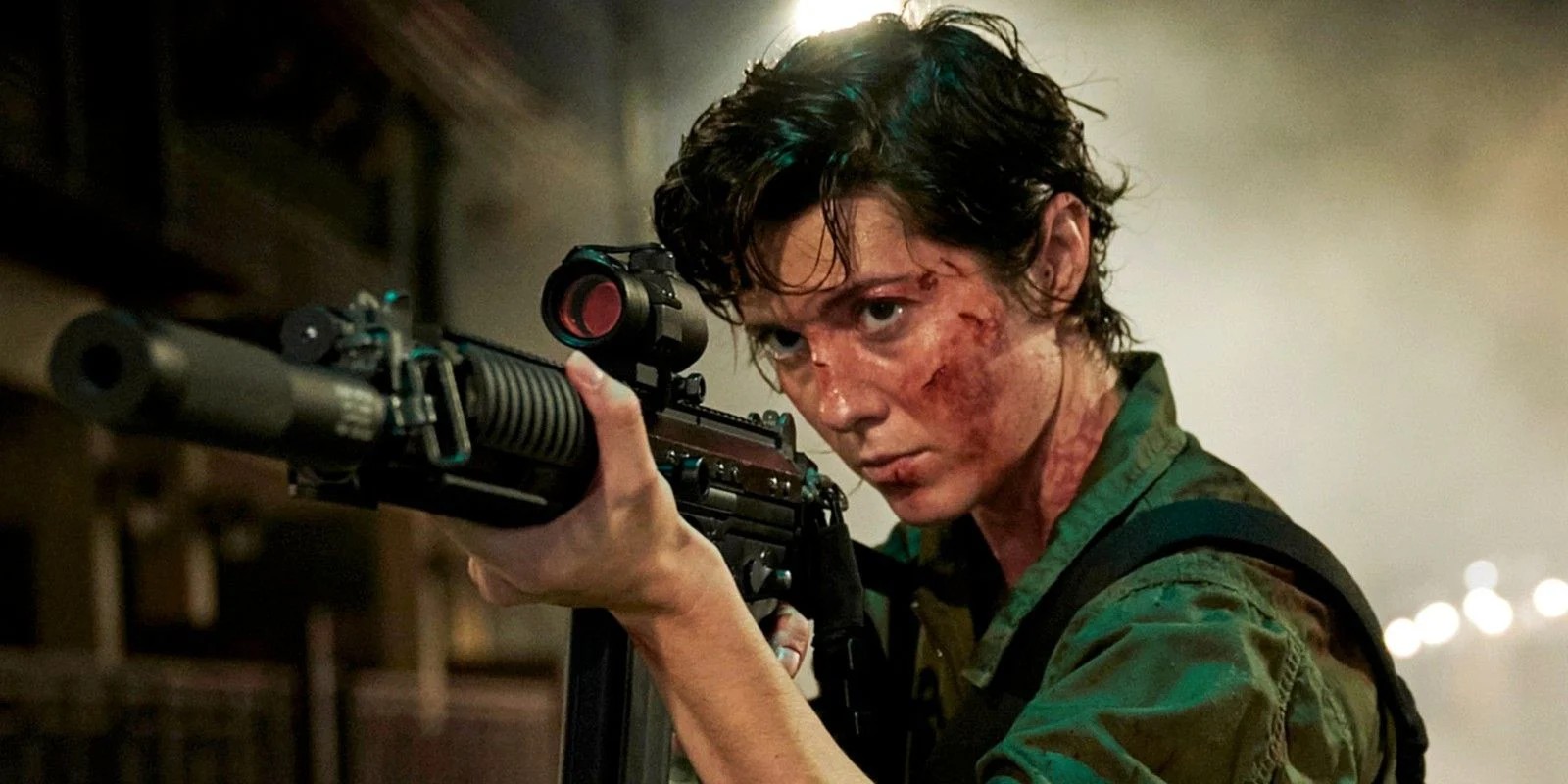
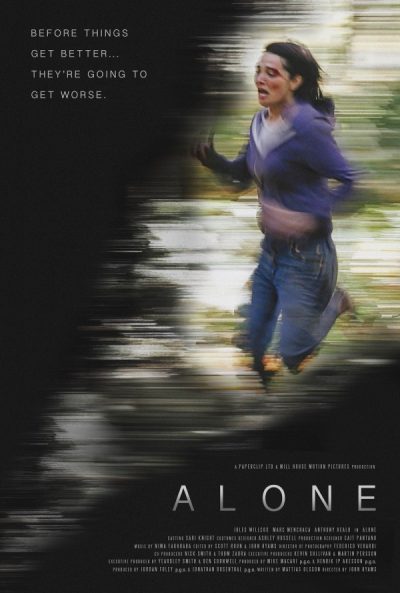 Jessica (Willcox) is making a break from her new life, packing up her possessions and driving away from her home and family in the big city. However, it’s not long before her journey through the countryside begins to hit bumps in the road. Specifically, in the shape of another driver (Menchaca), whose actions against Jessica veer between the aggressively hostile and the creepily over-friendly. The two encounter each other on a number of occasions, the incidents escalating until he finally drugs and kidnaps her. She wakes to find herself locked in the basement of a remote cabin, and needs to find a way to avoid a fate which, it appears, others before her have suffered.
Jessica (Willcox) is making a break from her new life, packing up her possessions and driving away from her home and family in the big city. However, it’s not long before her journey through the countryside begins to hit bumps in the road. Specifically, in the shape of another driver (Menchaca), whose actions against Jessica veer between the aggressively hostile and the creepily over-friendly. The two encounter each other on a number of occasions, the incidents escalating until he finally drugs and kidnaps her. She wakes to find herself locked in the basement of a remote cabin, and needs to find a way to avoid a fate which, it appears, others before her have suffered.




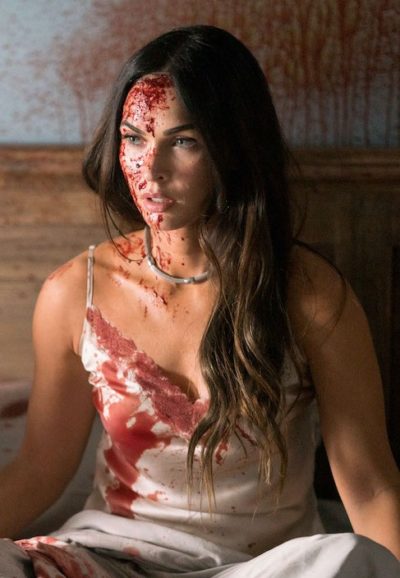 I kinda agonized, for far longer than I should have, over whether this was a 3-star or 2½-star film. It’s probably 2¾. Or perhaps 2 5/8. No, 2 11/16. In the end though, it doesn’t matter. It’s just another in Megan Fox’s attempts to become the next Angelina Jolie, following in the footsteps of the similarly okay but not exactly memorable
I kinda agonized, for far longer than I should have, over whether this was a 3-star or 2½-star film. It’s probably 2¾. Or perhaps 2 5/8. No, 2 11/16. In the end though, it doesn’t matter. It’s just another in Megan Fox’s attempts to become the next Angelina Jolie, following in the footsteps of the similarly okay but not exactly memorable  ★★★
★★★ There is also, quite often, some kind of emotional resonance, in the cases where the child is not biologically related [when that is the case, you don’t typically need or get any more explanation, blood being thicker than water]. Maybe the kid acts as a surrogate, a replacement for one previously lost (Alien), or the heroine could never have. Or if a girl, the protagonist can perhaps see a younger version of herself. The other common theme is the use of the child as a key, to unlock the adult. Often, the latter has lost her humanity, typically through harsh circumstances, becoming largely a lone figure, with her emotions suppressed. The “childlike innocence” of the young person, to use a cliché, can be used as a psychological crowbar, pricing open the hard shell of the grown-up, allowing them to reconnect with their humanity. The more emotionally-driven immaturity also stands in contrast to the adult’s stoicism, often to an extreme degree.
There is also, quite often, some kind of emotional resonance, in the cases where the child is not biologically related [when that is the case, you don’t typically need or get any more explanation, blood being thicker than water]. Maybe the kid acts as a surrogate, a replacement for one previously lost (Alien), or the heroine could never have. Or if a girl, the protagonist can perhaps see a younger version of herself. The other common theme is the use of the child as a key, to unlock the adult. Often, the latter has lost her humanity, typically through harsh circumstances, becoming largely a lone figure, with her emotions suppressed. The “childlike innocence” of the young person, to use a cliché, can be used as a psychological crowbar, pricing open the hard shell of the grown-up, allowing them to reconnect with their humanity. The more emotionally-driven immaturity also stands in contrast to the adult’s stoicism, often to an extreme degree. 

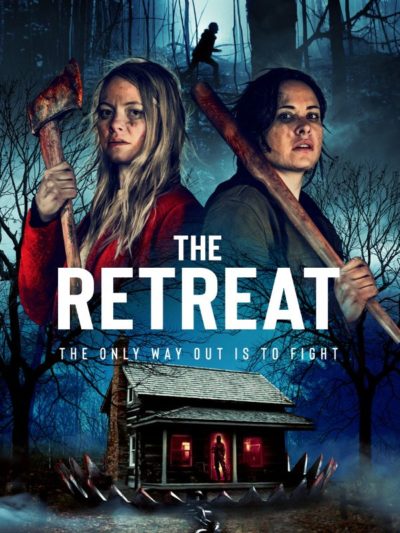 After the unexpected pleasures of
After the unexpected pleasures of 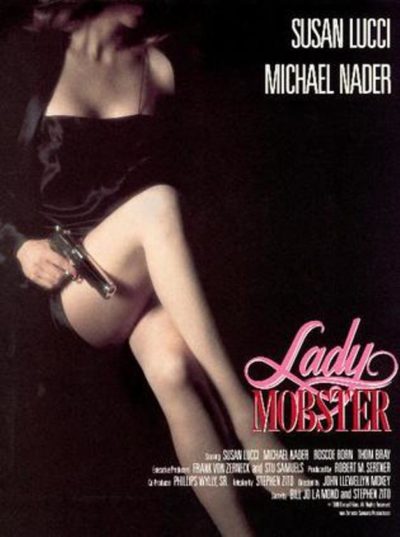

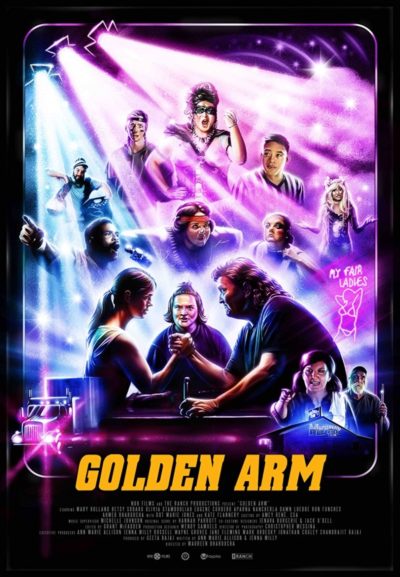 The sport of arm-wrestling has been featured in the movies before, most notably the Sylvester Stallone vehicle, Over the Top. But that wasn’t a comedy – at least, not intentionally. This entry, as well as switching to the distaff side, also has its tongue in cheek, while still sporting a strong message about female empowerment, that never becomes a lecture. If you’re looking for an inspiration I’d saw the
The sport of arm-wrestling has been featured in the movies before, most notably the Sylvester Stallone vehicle, Over the Top. But that wasn’t a comedy – at least, not intentionally. This entry, as well as switching to the distaff side, also has its tongue in cheek, while still sporting a strong message about female empowerment, that never becomes a lecture. If you’re looking for an inspiration I’d saw the 